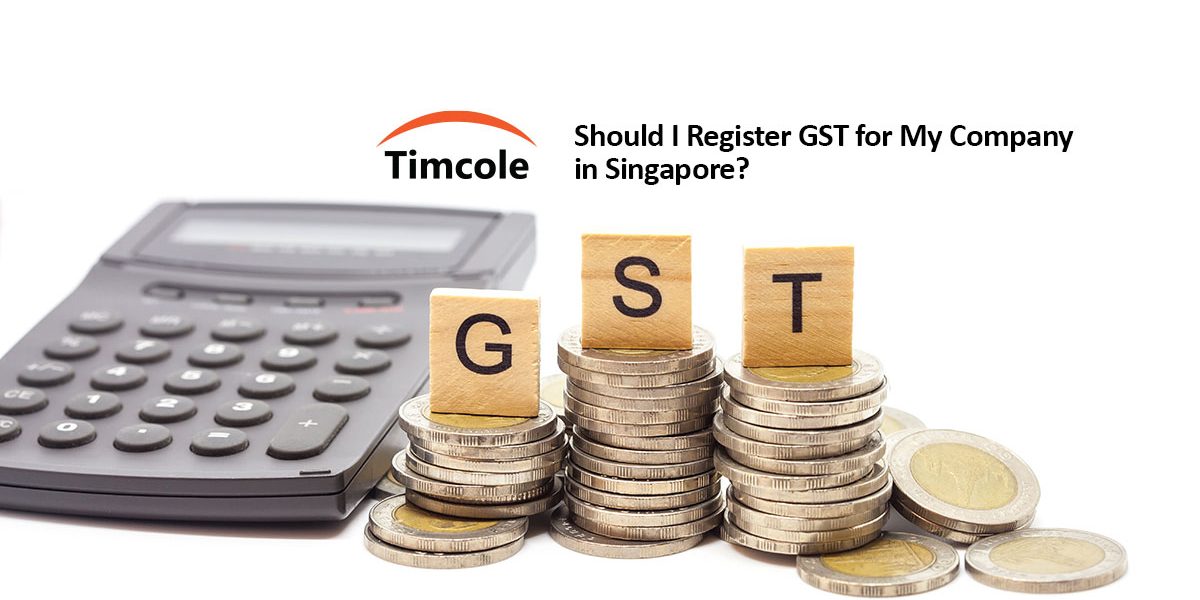If your company’s revenue is not up to $1 million, you may be questioning yourself within whether you should register GST for your company.
Goods and Services Tax
Goods and Services Tax in Singapore is a consumption tax levied on supplies of goods and services within Singapore as well as the import of goods. The only transactions that GST are not levied on are leases and sales of residential properties and most of the financial service provisions.
Registering for GST
When the turnover of a business setup exceeds $1 million per year, such a setup must come forward for GST registration. Businesses that are yet to exceed $1 million may decide to register for GST voluntarily.
After a business setup registers for GST, it must charge GST on sales and services at the prevailing rate. The GST that businesses charge is called the output tax and everything will eventually be forwarded to the IRAS. Businesses can also incur GST on purchases and expenses.
All GST that businesses incur on business purchases are known as input tax. If a business satisfies certain conditions, it can claim input tax. The purpose of this credit mechanism is to balance the tax at every stage of the supply chain so that only the value added is taxed.
GST Return
All GST-registered businesses are expected to forward GST return to IRAS when the prescribed accounting period ends. The business will give a full account of its input and output tax for the prescribed accounting period. The difference between the output and the input gives the net GST refundable from or payable to IRAS.
You can’t claim GST incurred on your expenses or purchases if your business is not GST-registered. However, you also won’t have to charge your customers for GST.
 Apart from GST filing, a company must also compile financial statement and file other corporate tax.
Apart from GST filing, a company must also compile financial statement and file other corporate tax.
Learn more on Singapore IRAS compliance here.








